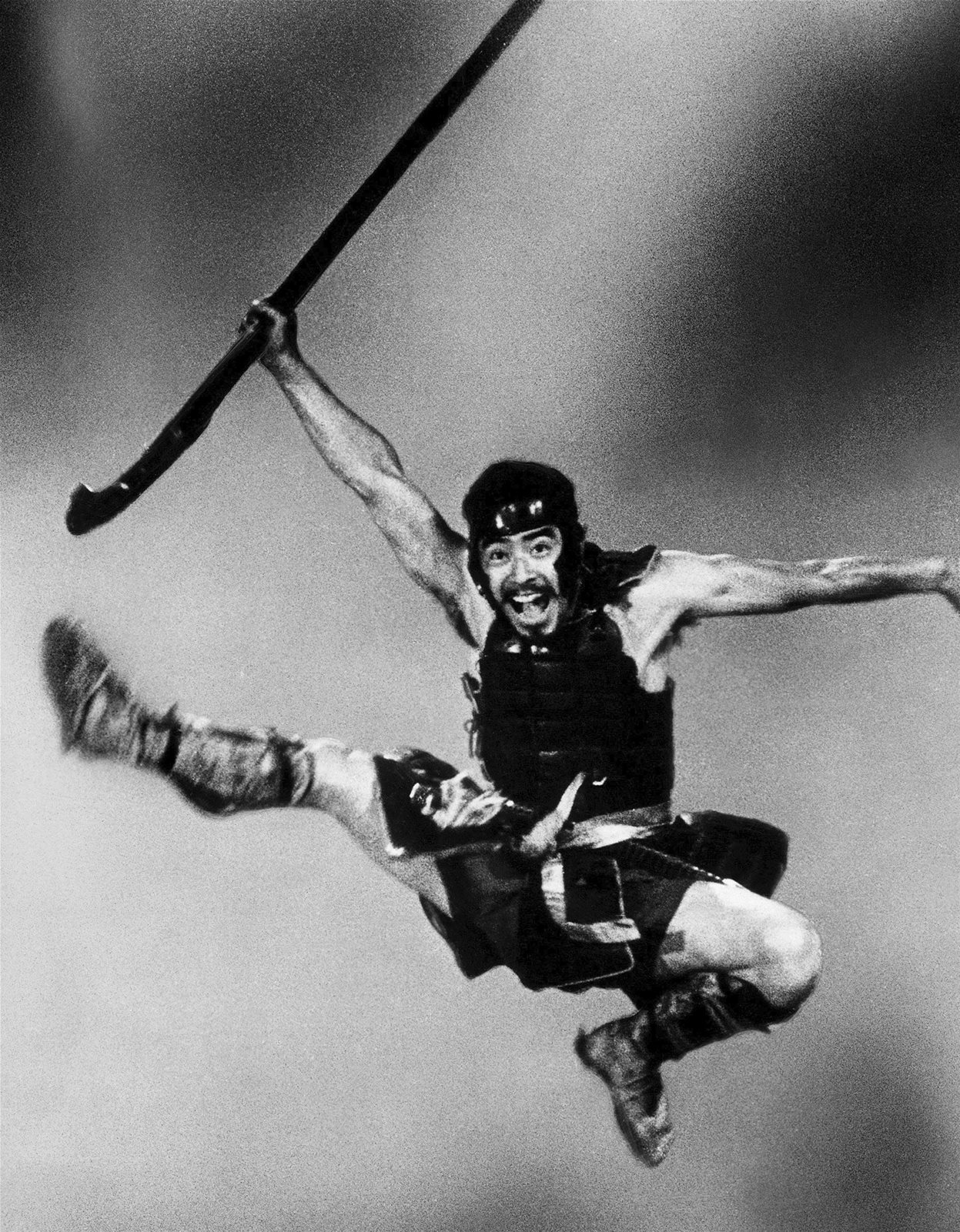
Alamy, Allstar
TOSHIRŌ MIFUNE BECAME an actor accidentally. Miraculously, even. After applying to be an assistant cameraman for Toho Studios, a mix-up landed him in their New Faces contest instead. This is when Akira Kurosawa first laid eyes on him. The director recalled a young man “reeling around the room in a violent frenzy”, like “a wounded or trapped savage beast trying to break loose”. Thus began their long, legendary collaboration. With Yojimbo (1961) and Sanjuro (1962), Mifune created an enduring archetype: the wandering anti-hero, a Man With No Name first emulated by Leone and Eastwood, and now ubiquitous.